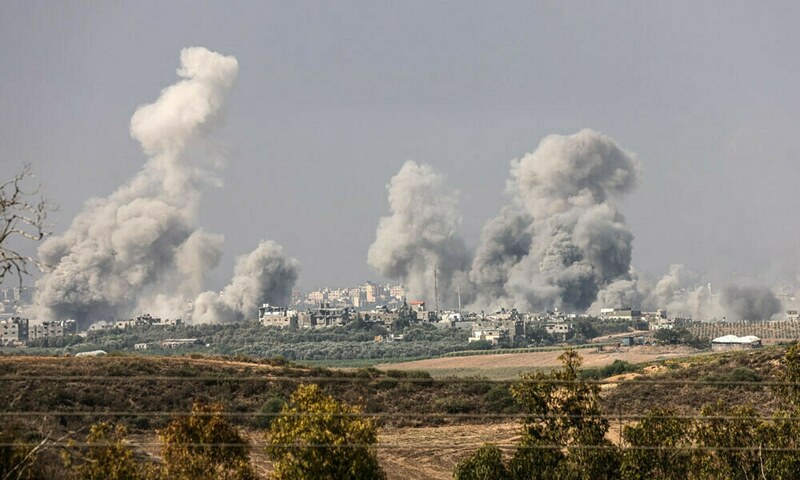GAZA: As she left Gaza through the Rafah border crossing into Egypt, 11-year-old Farah Salouha was relieved to be out but sad to leave her father, still living in the tiny, crowded enclave under Israeli bombardment.
For the few hundred foreign passport holders and badly injured people allowed out of Gaza over recent days, their departure has ended weeks of peril and hardship, without adequate food, shelter, clean water or medicine.
But most are leaving close relatives and friends trapped with dwindling supplies as Israeli’s military presses an assault on the northern half of the enclave that has cut it off from the south.
“My Dad told me to be safe. He held me and he kissed my forehead because he is very worried about me,” said Salouha, a Palestinian-American, as she stepped down from a bus that had taken her across the frontier with her mother and siblings.
Israel has blockaded and pounded Gaza for three weeks as it launches a military operation in the enclave of 2.3 million people that it says is aimed at smashing Hamas, after it killed 1,400 Israelis and abducted 240 others in an Oct. 7 attack.
Israel fires missile at Gaza house of Hamas chief Haniyeh
Health authorities in the Hamas-run enclave say Israeli air and artillery strikes have killed 9,488 Palestinians including around 3,900 children and 150 medical staff.
Israel last month ordered all civilians to quit the northern half of Gaza, though it continued to bombard southern areas. In Khan Younis, the main city in southern Gaza, residents searched the rubble for survivors after an air strike on Saturday.
A mechanical digger pulled away chunks of concrete as rescuers dug towards the body of a woman while dozens of people stood in the ruins nearby watching. The body was eventually carried away, under a blanket on a stretcher.
Afterwards bodies lay in white shrouds on stretchers by a stairwell at the hospital in Khan Younis, two men sitting nearby and a girl silently watching, weeping, through the railings.
“The start of the war was very hard because I was sick and I couldn’t sleep in my room, but then they told me to get out of Gaza and I didn’t want to leave Gaza,” said Salouha.
Speaking of her father, who is staying in Gaza for now, she said: “I miss him a lot because it’s very hard to take care of him in the war.”
Northern Gaza
Northern parts of Gaza, cut off from the south by Israel’s military, are facing even tougher conditions.
Although Israel said it would allow travel along a road to the south for three hours on Saturday, many people were too afraid to use it. Up to 400,000 people remain in the north, according to the United States.
On Friday, video taken on a road running between northern and southern areas showed seven bodies, including a child, lying apparently dead surrounded by their belongings. Neither Israel nor the Hamas-run authorities in Gaza have commented on the deaths.
In Gaza City and neighbouring refugee camps, which are entirely encircled by Israeli forces, people said the bombardment had been intense and living conditions were getting worse.
“There isn’t a single bakery open here. We didn’t have bread for the past four days,” said Mohammed, a resident of Beach Camp, refusing to give his family name for fear of Israeli reprisals.
The Hamas-run government media office in Gaza said Israeli strikes had started targeting solar power plants, after external electricity had been cut off and most generators were out of fuel.
“They want the whole city to live in darkness,” said Mohammed, who said solar panels on rooftops were now being taken out by air strikes.
Read the full story at the Business Recorder - Latest News website.



